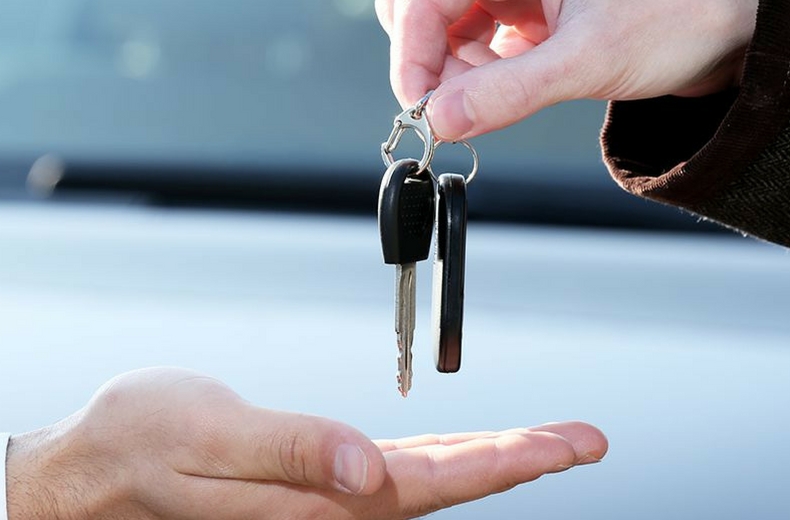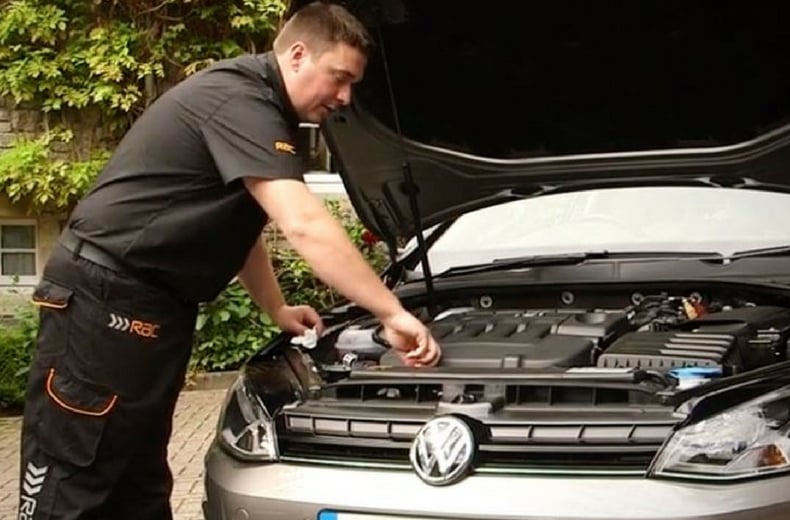There is plenty to consider when buying, from checking the car is right for you, to the loss of the car's value over time (known as depreciation), to arranging tax and car insurance.
Read on to find out everything you need to know so you can buy with confidence.
Consider car depreciation
Depreciation - the value of an asset decreasing over time - is at its highest in the first few years of the car's life.
On average, and depending on various factors, a new car can depreciate between 15-35% in its first year, and 40-60% over three years. That can be tens of thousands of pounds lost.
There is no exact formula or guide book to give you the answer to this, but the best way to get an idea of depreciation on the car you are about to buy is to search RAC used cars to find a car that is the same, or similar to the new car you are considering to see how much it is worth now.
You could also look at previous models of the particular car you are looking to buy and find out year on year how it is holding its value.
One way to avoid dealing with depreciation is by leasing - you simply hand your car back at the end of the finance term for the dealer or broker to sell on. Often you'll pay less in leasing cost than the car has lost in value over time.
If you’re looking to sell your current car, try the free value my car tool for an instant online valuation.
Know your buying rights
Find out as much as you can about your consumer rights before buying a new car:
- Check the car matches the dealer's description including details about its condition.
- Make sure the car meets the standards expected of a car of the price it is advertised at. Make sure the car is brand new by checking the mileage and ask questions if something doesn't seem right. If you are mis-sold a car you could be entitled to your money back.
- Carefully check the terms of any additional warranty or breakdown insurance that comes with your new car. There may be limits on the amounts of each claim or the number of claims you can make.
Part exchange your old car

Many dealers will take your old car as part payment, so it's worth asking them to have a look at your current vehicle just in case.
Usually the amount you'll be offered will be lower than the true market value - this is called the 'trade-in value'.
It's the amount the dealer considers is fair given the car's age, mileage and condition, minus any costs the dealer could incur in unknown repairs and with some profit margin taken into account.
However, doing so means you won't have to worry about trying to sell the car yourself. You could also consider popular online trade-in sites that may give you a better price for your car.
Carry out a thorough check of your new car
A brand new car should be in pristine condition and have no faults, but check all areas of the car before you buy.
The interior should smell and look brand new, the tyres should have zero wear on them and the paintwork should be pristine.
Temporary Car Insurance
Get short term insurance from 1 hour to 30 days. It’s quick! Get covered within 15 minutes. Buy online 24/7.


Check the dealer has registered your new car
When you buy a new car, the dealer should have already registered it.
If not, contact the Driver and Vehicle Licensing Agency (DVLA) as soon as possible to register your new car.
Get car insurance

You must have at least valid third party car insurance to drive your new car home.
- You can set up car insurance on the day you buy a new car, or
- You can buy a temporary car insurance policy to test drive the car, or to drive it home and organise an annual car insurance policy when you are certain you’ll keep the car

RAC sale – up to 33% off*
• Roadside cover from £5.49 a month†
• We get to most breakdowns in 60 mins or less
• Our patrols fix 4/5 breakdowns on the spot

Tax your new car
Your dealer should be able to set this up for you but you'll need to have your car insurance sorted.
For tax you would normally also require the MOT certificate, however, this is not the case for new cars as they do not need an MOT for the first three years (or four years in Northern Ireland).
We have a handy guide that explains car tax bands. When you buy a new car, you are charged a first year rate of road tax (sometimes call the 'showroom' tax), which is usually included in the list price of the vehicle. If you are unsure, ask the seller.
Consider breakdown cover
You would hope your new car won't break down on the way home, but you never know.
Many new cars come with accident and breakdown cover but if yours doesn't then it is advisable to arrange breakdown cover for your new vehicle as soon as possible.
You should be entitled to a refund if your car is not as described or doesn't function as it should under the Consumer Rights Act.
Get to grips with your new car

Learn the controls, check the owner's manual for how to change the oil and check your tyres and screenwash, there are a number of regular under the bonnet checks you can carry out to keep your car healthy.
Now you're ready for your first road trip in your brand new car!
Buying a new car - FAQs
- What time of year is cheapest to buy a car?
According to multiple sources, the cheapest time of year to buy a vehicle, is the last three months of the year. However, this doesn’t apply to all types of cars. Check your listings and compare to similar vehicles that are available.
- What is the best way to shop for a new car?
Shopping for a new car is an exciting experience, but it can also be quite overwhelming. To make sure you get the best deal and make the right decision, it’s important to do your research and to be prepared. First, take the time to figure out what kind of car you need. Consider your needs and lifestyle - as well as your budget. When you are considering money, look at what other costs may be (tax, repairs, running costs, fuel, insurance, etc). Once you know what type of car you’re looking for, it’s time to start researching. Check out online reviews to get an idea of what kind of car you should be looking for. You can also check out car magazines and other publications to get an idea of what’s out there.
When you’ve narrowed down your choices, it’s time to start visiting dealerships. Bring a friend or family member with you, so you have a second opinion and someone to help you stay on track. Compare prices and features between different makes and models, and don’t be afraid to haggle. It’s also important to test drive the car before you make a final decision. Make sure you get a feel for how the car handles and if it fits your driving style.
Finally, make sure to read the fine print before you buy. Make sure you understand the warranty and any additional fees, and that you know what you’re getting for your money. By doing your research, comparing prices, and test driving the car, you can find the best deal and make the right decision when shopping for a new car. - What is the most secure way to pay for a car?
Like it is with any large payment, the best way to buy a car is through a secure, online payment. It is worth contacting your bank ahead of the purchase to let them know that a larger sum may leave the account in the near future.
- Why are cars being delayed?
The auto industry is facing a number of issues that are causing delays in car production. From supply chain disruptions to the changing consumer habits and preferences, it’s no surprise that cars are being delayed. One of the biggest reasons for car delays is the disruption of the global supply chain. The COVID-19 pandemic has caused a number of countries to shut down production and factories, which has disrupted the availability of certain components and materials necessary for car production. This has caused a number of delays in production as carmakers seek new suppliers and wait for components to become available.
The main issue affecting new car supply is a global shortage of semiconductors and microchips for the electronic aspects of a vehicle. This looks set to continue in the years ahead.

RAC sale – up to 33% off*
• Roadside cover from £5.49 a month†
• We get to most breakdowns in 60 mins or less
• Our patrols fix 4/5 breakdowns on the spot
*T&Cs apply. †At least 10% of new customers pay this for single-vehicle Roadside (Basic). Not on sale.














